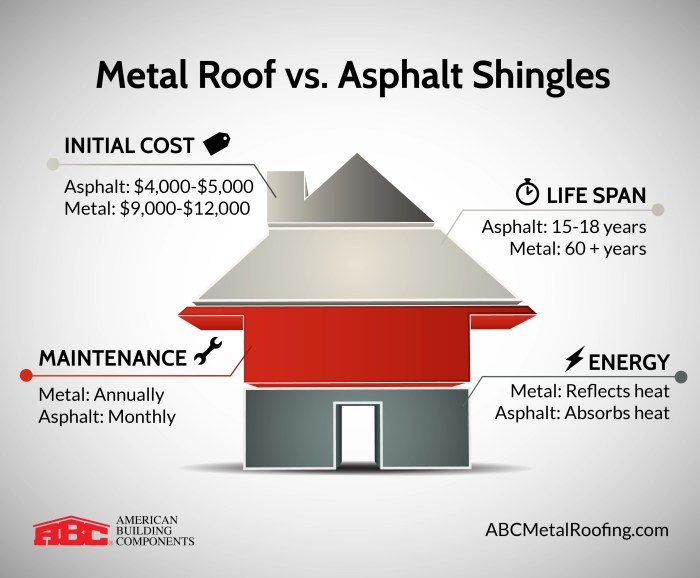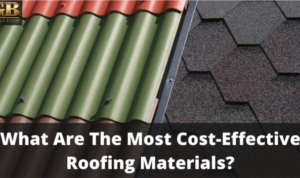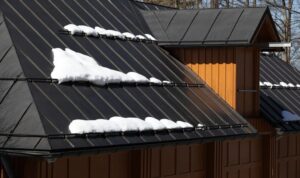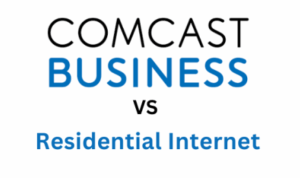Exploring the age-old debate of metal vs asphalt shingles which is better, this article delves into the key differences and considerations between the two popular roofing materials. Get ready to discover the pros and cons that will help you make an informed decision for your next roofing project.
Metal vs. Asphalt Shingles

Metal and asphalt shingles are popular roofing materials, each with its own set of advantages and disadvantages. Let's delve into the key differences between the two in terms of durability, installation process, and maintenance requirements.
Durability
Metal shingles are known for their exceptional durability, often lasting 50 years or more with proper maintenance. They are resistant to harsh weather conditions such as rain, snow, and high winds. On the other hand, asphalt shingles have a shorter lifespan of around 20-30 years and may require more frequent repairs or replacements due to wear and tear over time.
Installation Process
The installation process for metal shingles is typically more complex and requires specialized tools and expertise. Metal shingles are heavier than asphalt shingles, so proper structural support is necessary. In contrast, asphalt shingles are lighter and easier to install, making them a more straightforward choice for many homeowners.
Maintenance Requirements
Metal shingles are relatively low maintenance, requiring occasional inspections and repairs to ensure longevity. They are less prone to damage from pests, mold, and rot compared to asphalt shingles. Asphalt shingles, on the other hand, may require more frequent maintenance such as cleaning to prevent algae or moss growth, as well as regular inspections for signs of damage or deterioration.
Cost Considerations
Metal roofing and asphalt shingles vary significantly in terms of cost, impacting both initial installation expenses and long-term financial considerations. Metal roofs generally have a higher upfront cost compared to asphalt shingles, but factors such as durability and energy efficiency may influence the overall cost-effectiveness of each option.
Initial Installation Costs
Metal roofing typically comes with a higher price tag for materials and installation compared to asphalt shingles. The cost of metal shingles can vary depending on the type of metal used, such as aluminum, steel, or copper, as well as the complexity of the installation process.
On the other hand, asphalt shingles are more budget-friendly in terms of initial expenses due to their lower material and labor costs.
Long-Term Expenses
While metal roofs may require a larger investment initially, they are known for their longevity and durability. Metal shingles can last 50 years or more, outlasting asphalt shingles, which generally have a lifespan of 20-30 years. This extended lifespan can result in lower long-term expenses for maintenance and replacement, making metal roofing a cost-effective choice over time.
Return on Investment
When considering the return on investment (ROI) for roofing materials, it's essential to factor in not only the initial cost but also the long-term savings and benefits. Metal roofing, despite its higher upfront cost, can provide a higher ROI due to its durability, energy efficiency, and potential savings on maintenance and replacement costs over the years.
Asphalt shingles, while more affordable initially, may require more frequent repairs and replacements, impacting the overall ROI in the long run.
Environmental Impact
Metal vs. Asphalt Shingles, Environmental ImpactMetal shingles are considered to be more environmentally friendly compared to asphalt shingles. Metal shingles are often made from recycled materials such as aluminum or steel, making them a sustainable option for roofing. Additionally, metal shingles are highly durable and have a longer lifespan than asphalt shingles, reducing the need for frequent replacements and minimizing waste
This can lead to lower energy consumption and reduced carbon emissions, making metal shingles a more eco-friendly choice for homeowners.Metal vs. Asphalt Shingles, Production and Disposal ImpactThe production of asphalt shingles involves the use of fossil fuels and the emission of greenhouse gases, contributing to air pollution and climate change.
Additionally, the disposal of asphalt shingles can be harmful to the environment, as they often end up in landfills where they take a long time to decompose.Comparing SustainabilityIn terms of sustainability, metal shingles are a better option than asphalt shingles.
Metal shingles are recyclable and have a longer lifespan, reducing the overall environmental impact of roofing materials. While asphalt shingles can be recycled to some extent, their shorter lifespan and production process make them less sustainable in the long run.
Aesthetics and Design
Metal vs. asphalt shingles isn't just about durability and cost – the aesthetic appeal of your roof plays a significant role in the overall look of your property. Let's delve into the design options available for both types of shingles and how they can impact the curb appeal of your home.
Aesthetic Options for Metal Shingles
Metal shingles come in a variety of styles, finishes, and colors, offering homeowners a wide range of options to choose from. Whether you prefer a sleek modern look or a more traditional appearance, metal shingles can be customized to suit your aesthetic preferences.
Some popular choices include:
- Standing seam metal roofing for a contemporary look
- Metal shingles that mimic the appearance of slate or wood
- Color options such as copper, zinc, or painted finishes
Aesthetic Options for Asphalt Shingles
Asphalt shingles are known for their versatility and can replicate the look of more expensive roofing materials at a fraction of the cost. Homeowners can choose from a wide range of styles, including:
- Architectural shingles for a dimensional look
- Traditional 3-tab shingles in various colors
- Luxury asphalt shingles that resemble cedar shakes or slate
Impact on Curb Appeal
The choice between metal and asphalt shingles can significantly impact the overall curb appeal of your property. Metal shingles are prized for their modern and sleek appearance, adding a contemporary touch to any home. On the other hand, asphalt shingles offer a more traditional look and can complement a wide range of architectural styles.
Ultimately, the design of your roof can enhance the visual appeal of your home and increase its resale value.
Wrap-Up
In conclusion, the choice between metal and asphalt shingles ultimately boils down to your specific needs and preferences. Whether you prioritize durability, cost-effectiveness, environmental impact, or aesthetics, both options have their own set of advantages. Consider all factors carefully before making your final decision.
Clarifying Questions
Which roofing material is more durable: metal or asphalt shingles?
Metal shingles are generally more durable than asphalt shingles, as they can withstand harsh weather conditions and have a longer lifespan.
Are metal shingles more expensive than asphalt shingles?
Initially, metal shingles have a higher upfront cost compared to asphalt shingles, but they can be more cost-effective in the long run due to their durability and low maintenance.
Do metal shingles have a better environmental impact than asphalt shingles?
Metal shingles are considered more environmentally friendly as they are recyclable and have a longer lifespan, reducing waste compared to asphalt shingles.
Which roofing material offers more design options: metal or asphalt shingles?
Metal shingles typically offer a wider range of design options compared to asphalt shingles, allowing for more versatility and customization in roof aesthetics.






